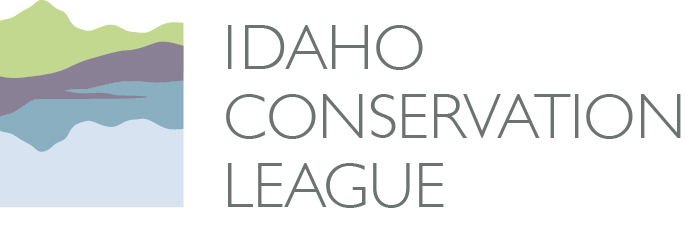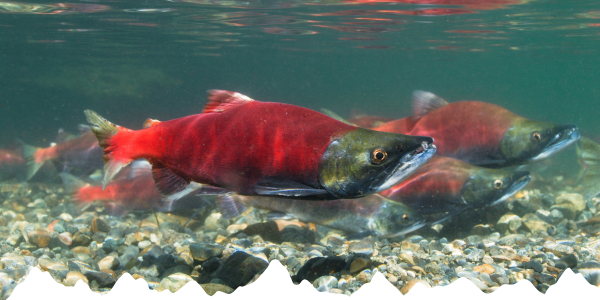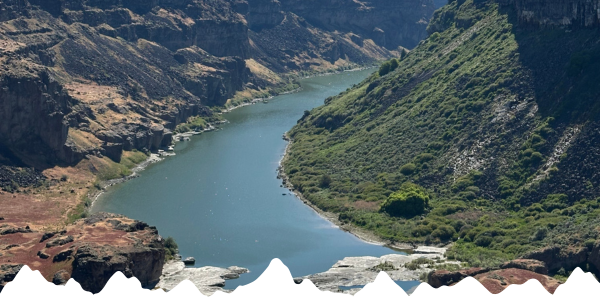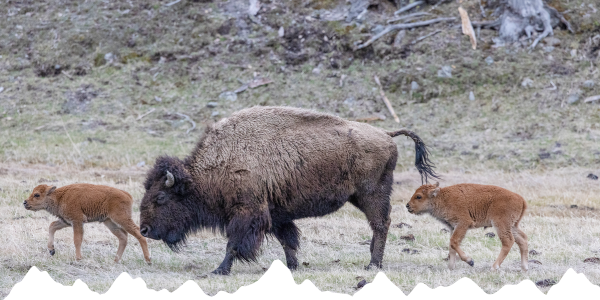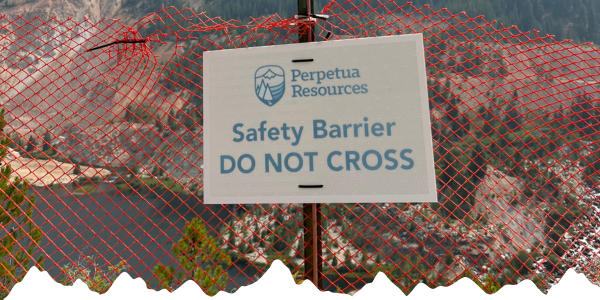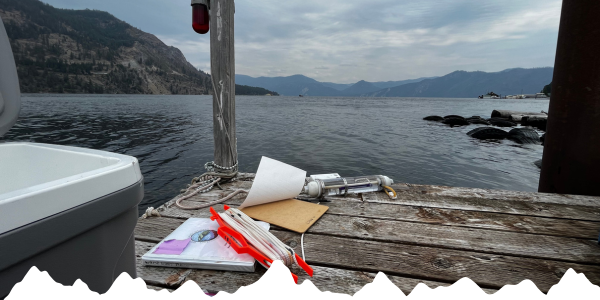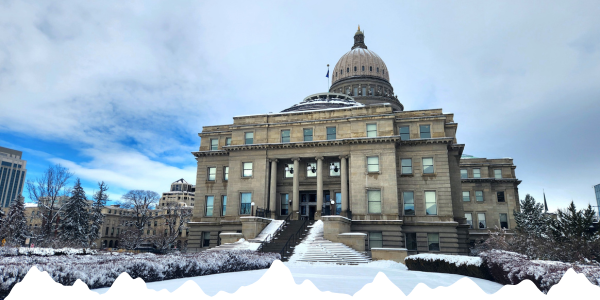Building a Just, Equitable, Diverse and Inclusive Conservation Movement
At ICL, we believe everyone should have clean water, clean air, access to public lands, and the opportunity for meaningful involvement in environmental issues. ICL is committed to ensuring our organization as a whole—and the conservation work we do—is inclusive, equitable, and just. Our long-term goal is to broaden our work to better serve the diversity of people our work connects to, particularly those populations with traditionally underrepresented voices or marginalized communities.
We recognize that the environmental movement in the United States has a problematic and exclusionary past and that Idaho has a troubling history of overt racism and white supremacy that continues to this day. Idaho’s marginalized and underrepresented communities are the most negatively impacted by environmental harms and injustices while often being excluded from decisions that directly impact them. We acknowledge the past and current injustices in conservation work in Idaho, and ICL is actively working toward a future that does not repeat the same mistakes.
In November 2022, ICL adopted an organizational Diversity, Equity, Inclusion, and Justice (DEIJ) plan that is focused on expanding internal capacity to do this work, providing additional opportunities for staff and board DEIJ learning, and improving our internal structures and processes through a DEIJ lens. We are currently in the midst of implementing this plan in order to be a more inclusive and diverse organization at all levels, and to play an active role in creating similar change at the state level and across the broader conservation community.
DEIJ in our work
As part of our organizational DEIJ plan, ICL is putting increased emphasis toward ensuring that our conservation work is inclusive of a diverse array of communities and brings back benefits to the very people that have historically been most impacted by environmental harms.
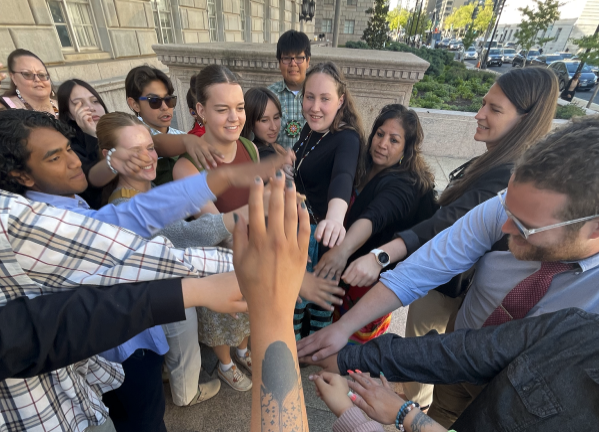
Restoring Salmon & Steelhead
Since time immemorial, Native American Tribes in the Pacific Northwest have relied on salmon, which provides a cultural, religious, economic, and dietary foundation for these peoples. Since the arrival of European settlers in the 19th century, salmon populations in Idaho have declined by 98%. To preserve what’s left, Idaho’s Tribes have taken a leading role in salmon conservation to preserve the fish they reserved for themselves in treaties with the U.S. Government. Without this work, Idaho’s wild salmon and steelhead would be gone.
ICL is proud to partner with Tribes and support their priorities for salmon recovery. Our shared goal is to reestablish widespread, abundant populations of salmon, steelhead, and other native fish across Idaho. This is the first step in a long pathway toward Tribal justice and fulfillment of the promises our country made to Tribal Nations long ago. We work with Tribes to advance their legislative proposals, to support additional funding for Tribal projects, and to educate the public on the great success Tribal fisheries departments have had and continue to have in preserving salmon and a way of life.
Climate
Climate change is affecting everything in the natural world, including individual lives and livelihoods. Much of our climate work is focused on where we get our energy from. Across the state, people interact most directly with the energy system through their bills; in the long run, building a renewable-centered grid is the best way to control costs to everyday ratepayers. ICL advocates for residential customers, small businesses, and local economies as it aligns with our decarbonization work. The most important equity action we can take is to aggressively reduce emissions to limit inevitable warming.
Snake River
To achieve our long-term goal to restore the Snake River in southern Idaho to a safe, swimmable, and fishable condition, we must include everyone who lives, works, and recreates in the area. The population of the Magic Valley region around Twin Falls is roughly one quarter Hispanic. Thus, ICL is actively engaging the Latinx community, particularly around drinking water quality and toxic algae outbreaks. To this end, we have developed Spanish-language versions of our educational outreach materials and are exploring ways to better disseminate that information into the community.
Public Lands
As part of our mining work, we are engaging with the Shoshone-Paiute Tribes to gain their perspective on mining projects proposed for their lands. We are also sharing some of the lessons we’ve learned through the state and federal permitting processes for mining projects with them. We have learned that partnering with local communities is the best way to discover the most relevant issues. We can then focus our efforts on the permits where we can make the biggest difference in protecting public health, cultural resources, and quality of life.
Wildlife
ICL’s wildlife initiative recognizes that Idaho’s native species are indispensable pieces of the cultural identities of Tribal peoples that have made lands, now defined by state boundaries, their home since time immemorial. We advocate for keystone wildlife species such as bison, wolves, and grizzly bears, in part, to return deep Tribal knowledge and cultural dependencies to the way those species are managed. ICL also strives to better understand the wide array of Tribal wildlife conservation perspectives by engaging in regular forums such as the Interagency Bison Management Program and Interagency Grizzly Bear Committee proceedings. ICL also supports Tribally-led efforts to recover and manage wildlife.
Reducing Pollution
ICL keeps a watchful eye on all environmental regulatory actions in the state, including the issuance of air and water quality permits. The Stibnite Gold Project, a large open pit mine proposed within the ancestral homelands of the Nez Perce Tribe, is in the midst of a lengthy permitting process. The Tribe is opposed to the Stibnite project and its threat to their tribal reserved treaty rights to hunt, fish, and gather in all usual and accustomed places. In recognizing the prehistoric existence and sovereignty of the Nez Perce Tribe, ICL staff work in cooperation with the Tribe to share our insights, analysis, and comments on various regulatory permits the mine must obtain. In addition, ICL has partnered with the Tribe in its appeal of the Stibnite Gold Mine’s air quality permit and water rights application. ICL recognizes the historic persecution of native tribes in the United States and is actively working to support the rights and environmental concerns of the Nez Perce Tribe.
North Idaho Lakes
In North Idaho, we actively engage with Tribal partners to ensure we are elevating conservation issues that are aligned with their needs. The Kootenai River is impaired with toxic selenium, which is threatening the Kootenai Tribe of Idaho’s (KTOI) efforts to restore their traditional burbot and Kootenai River white sturgeon fisheries. With respect for KTOI’s traditional and scientific knowledge, and sovereign food supply, we seek opportunities to elevate the problems and solutions in the media and with our elected officials. And as we endeavor to align with KTOI’s needs by safeguarding water quality upstream, we also are supporting efforts by the Upper Columbia United Tribes to reintroduce salmon in the Columbia River downstream of the Kootenai River’s confluence with the Columbia.
Legislature
During the 2024 Idaho legislative session, ICL played a leadership role in forming a coalition of diverse interests to protect public health and access to justice for all Idahoans by opposing the Pesticide Immunity Bill. Farmworkers, tribal members, and under-resourced communities face higher relative threats from pesticide poisoning, groundwater contamination, and exposure. Recognizing this, ICL reached out to and partnered with relevant stakeholders to raise awareness of the bill, share information, and to promote their voices. Through our collective efforts, we were able to defeat the bills that could have exposed all Idahoans to increased threats associated with pesticide exposure.
Acknowledgement
We acknowledge that we will always have work to do to embody and demonstrate these values and commit ourselves fully to that continuous growth. We understand that meeting our commitments requires a continual process of learning, humility, and openness to feedback. ICL is committed to hearing about the experiences or observations shared by the communities that we seek to engage and changing course as needed.
Questions?
ICL has a dedicated staff/board committee that is tasked with following through on the organization’s goals and commitments related to DEIJ. If you have questions about our DEIJ work, please contact [email protected] and your message will be forwarded to the committee.
